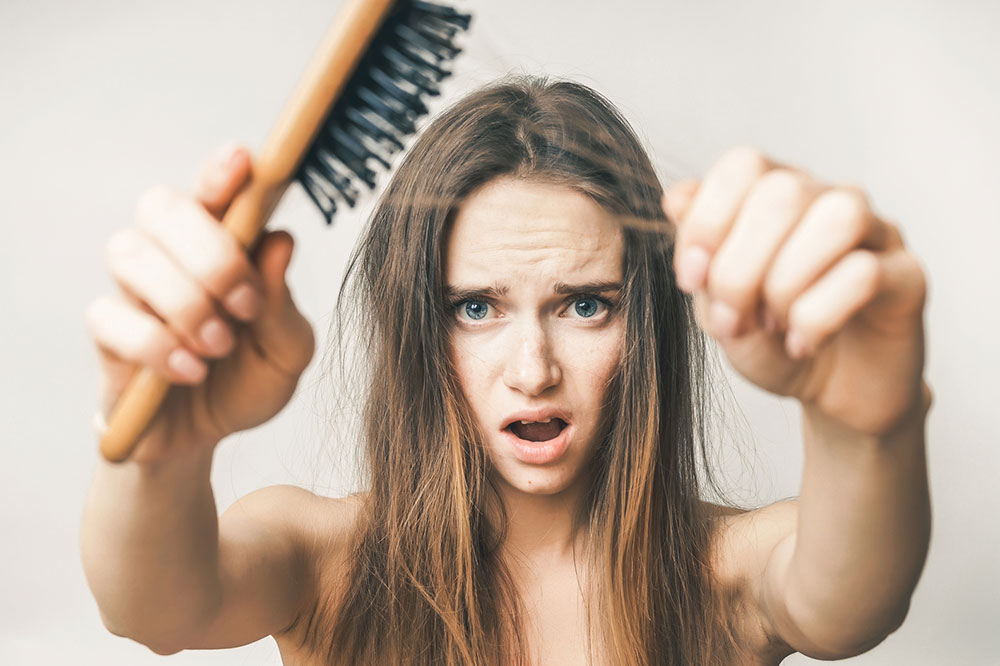
5 Effective Treatments for Thinning Hair for Women in Menopause
Hair thinning and hair loss can be one of the most unpleasant changes that women face during menopause. Women typically attain menopause between the ages of 40 and 50s due to extensive hormonal changes. Hair thinning and loss is one of its unfavorable consequences. This can contribute to anxiety, thereby making it more difficult to manage the condition. While changes in scalp health are normal, following treatments for thinning hair for women in menopause can help better manage the condition:
Hydration
This is one of the most primary treatments for thinning hair for women in menopause. It has been observed that due to hormonal changes, most women experience drier skin and hair as they age. While dry skin can be moisturized using lotions, it is important to use conditioners for hair after shampooing to lock the moisture in the hair. Maintaining hydration in the body by drinking more water also helps better manage hair loss or hair thinning.
Protein for hair thinning
Proteins are an essential part of the hair as they help to ensure stronger hair. Menopause can decrease the protein present in the hair. Including a high protein diet such as low-fat cottage cheese, legume, nuts, lean meats, and poultry can prevent hair thinning. Non-dietary protein sources such as keratin treatment and protein-enriched shampoos and conditioners can also be used to prevent hair loss.
Hormone replacement
Since menopause causes a reduction in hormonal levels, doctors suggest considering hormone replacement therapy to regulate hormone levels. The replacement therapy can be in the form of estrogen and progesterone pills and creams. These can regulate hormonal levels during menopause and prevent hair thinning and hair loss. Some women also use Minoxidil, which is a medicine that needs to be applied directly on the scalp. Minoxidil also helps in hair regrowth and prevents hair loss. Apart from this, there are birth control pills that regulate hormonal levels. However, the same should only be taken after consulting a doctor as most of these pills have high androgen levels that can accelerate hair loss.
Natural supplements
For women who are skeptical about trying hormone replacement therapy or cannot take the same due to medical reasons can try natural supplements. These can be one of the safest treatments for hair thinning for women in menopause. Foods such as soy products, grapes, blueberries, nuts, and flaxseeds in moderate amounts have been observed to naturally increase estrogen levels. It is important to consult a doctor or a nutritionist to make sure that none of these natural supplements are safe to eat and not trigger an underlying disease, if any.
Lifestyle changes
These can be in the form of exercising and meditation. Exercises, as simple as walking, can regulate metabolism. This can improve blood circulation and helps flush out toxins from the body. The same blood carries oxygen and other nutrients to the scalp, which can reduce hair thinning and incidences of hair fall. Stress also causes hair to fall. So, a bit of meditation every day can reduce stress, thereby helping better manage hair thinning.


